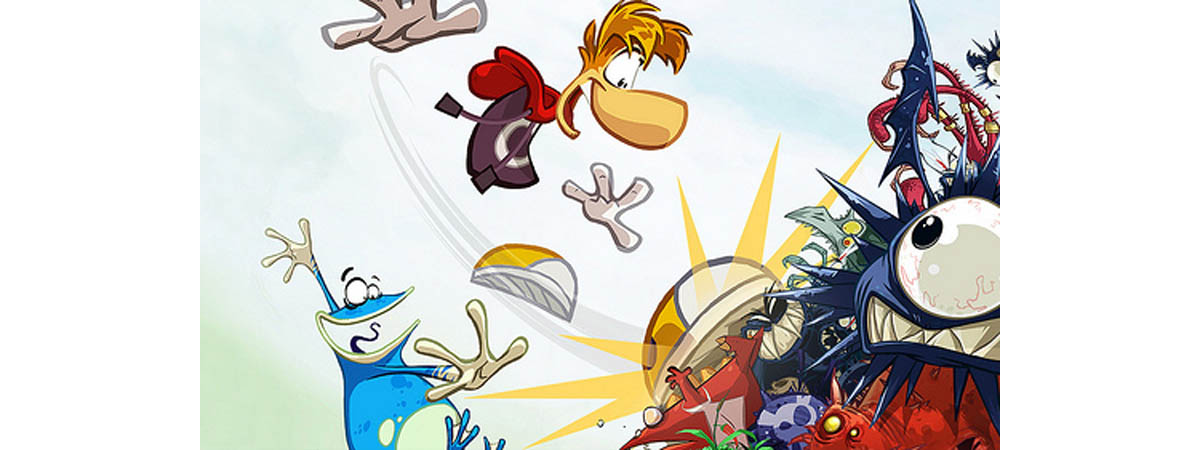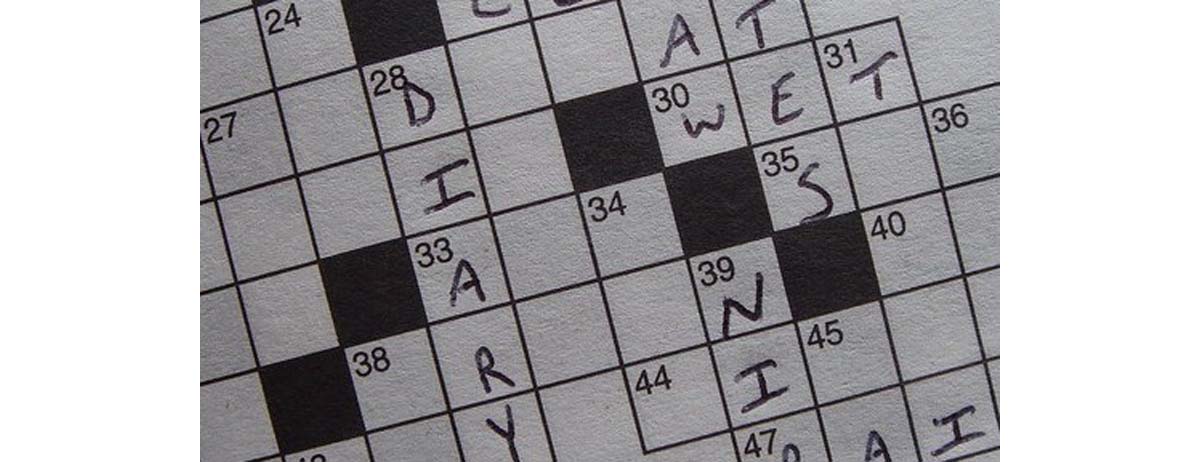The news wires have been abuzz with two simple techniques for boosting brain power in kids and adults, video games and crossword puzzles. Action video games help children who have dyslexia develop the focus they need to read better, and doing crossword puzzles every day helps elderly people at risk for developing dementia hang on to their cognitive abilities just a little longer.

Playing Video Games Boosts Test Scores
In what has to be good news for kids everywhere, and shocking news to most parents trying to get their children to do their homework, Italian researchers have announced findings of a study that concludes
Apparently assuming that all kids play video games (and in North America and Europe, about 90% do), Italian researchers divided children with dyslexia into two groups. One group played an intense action video game called Rayman Raving Rabbids for 12 hours over a period 9 days, an hour and twenty minutes per day, while the other group played a less intense video game. Study author Andrea Facoetti told Health Day that kids in the intense action group improved their reading skills as much as children who had completed an intensive reading improvement program.
The results weren't insignificant. Playing Rayman Raving Rabbids for 9 days resulted in a full grade level improvement in reading scores on a standardized achievement test taken the dyslexic children in the study. Playing video games isn't a substitute for doing your homework, but at least in developmentally challenged kids, it's hardly a waste of time.
Video Games May Improve Listening Skills, Too
Dr. Facoetti and her colleagues were not the first researchers to find an improvement in academic skills in children who play video games. Researchers at the Universidad de la Laguna in Tenerife, in Spain, conducted a study in 2008 that found that
Unlike the Italian group, the Spanish scientists used a video game specifically designed for children who had dyslexia called Tradislexia. The game, the researchers concluded, trained the brain to distinguish syllables, which simplifies reading words phonetically. Whether the game would also be useful for children who get their schooling in languages other than Spanish is an unanswered question.
Could Crossword Puzzles Delay Alzheimer's?
If you are old enough to be concerned about getting Alzheimer's, chances are that you give Wii for Christmas presents to your children, rather than buying a unit for yourself. But chances also are that you are familiar with crossword puzzles from crossword puzzle books and from the newspapers.

Doing a crossword puzzle is a mental workout for memory and cognition. It involves word associations, semantic memory (giving meaning to words and sentences), semantic priming (putting words into categories on the basis of sound as well as meaning), and list generation.
It gives the puzzle player a sense of knowing and not knowing, reinforcing the cues that indicate when memory is working well and when it is not. It refines the skill of latent semantic indexing, understanding different words that have similar meanings (synonymy) and words that have more than one meaning (polysemy).
Scientists in the Department of Neurosciences at the University of California at San Diego tracked the effects of doing crossword puzzles in 488 seniors participating in the Bronx Aging Study. Every 12 to 18 months, they tested their memory skills with the Buschke Selective Reminding Test. They found that regardless of educational level, regardless of whether the puzzle was filled out "correctly," doing crossword puzzles on a regular basis delayed the onset of age-related memory loss by an average of 30 months (2.54 years).
Sudoku Also Helpful for Training the Brain
Doing Sudoku has benefits, too. In a paper entitled "Can an old dog learn (and want to experience) new tricks?" researchers at Washington University in St. Louis reported their findings from an experiment in which they enrolled older adults in a 16-week course in inductive reasoning supplemented by assignments to do crosswords and Sudoku.
Sudoku puzzles, scientists tell us, help train the brain to deal with chaos, by imposing patterns on numbers. While this observation could be exaggerated, there is little doubt that doing Sudoku helps keep the brain active, just like doing crossword puzzles.
Doing puzzles won't prevent Alzheimer's or age-related memory loss indefinitely. But if it gives you an extra two or three years of independent living, why not give it a try? You have nothing to lose but a few minutes a day plus occasional frustration with a smarty-pants puzzle writer.
- Franceschini S, Gori S, Ruffino M, Viola S, Molteni M, Facoetti A. Action video games make dyslexic children read better. Curr Biol. 2013 Mar 18. 23(6):462-6. doi: 10.1016/j.cub.2013.01.044. Epub 2013 Feb 28.
- Pillai JA, Hall CB, Dickson DW, Buschke H, Lipton RB, Verghese J. Association of crossword puzzle participation with memory decline in persons who develop dementia. J Int Neuropsychol Soc. 2011 Nov. 17(6):1006-13. doi: 10.1017/S1355617711001111. PMID: 22040899 [PubMed - indexed for MEDLINE]
- Photo courtesy of tameryesildag on Flickr: www.flickr.com/photos/tameryesildag/7622361140


Your thoughts on this